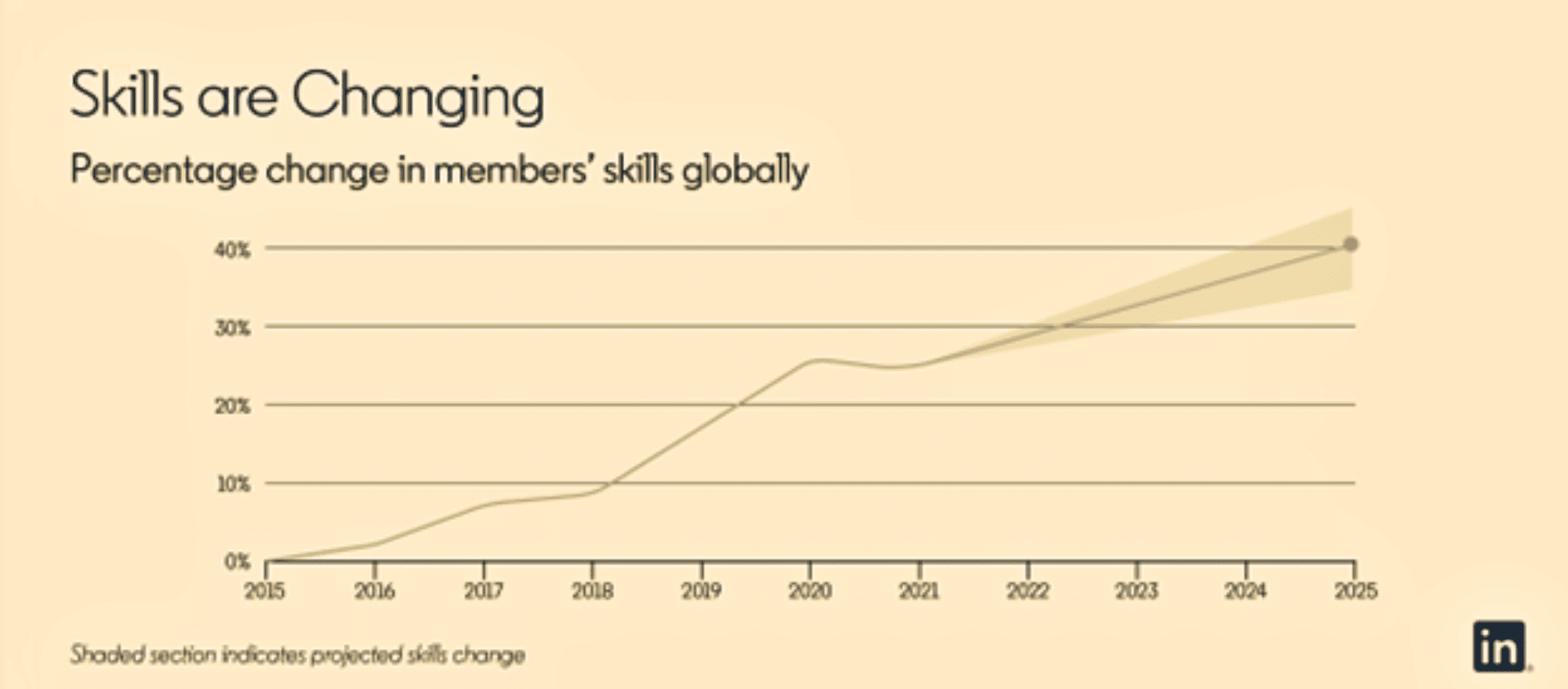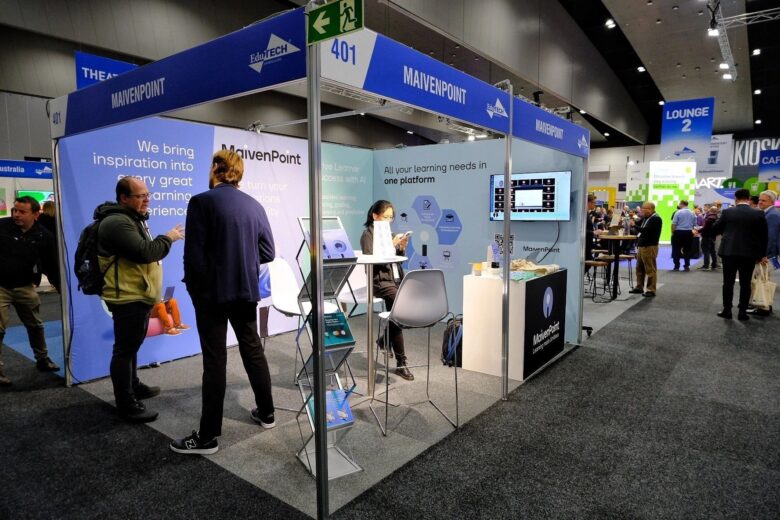Advancements in technology, globalisation, and changing consumer needs have created an increased demand for a new set of skills and competencies. For the global workforce, this means that traditional skill sets are no longer enough to guarantee success.
LinkedIn reports that the required skill sets for jobs have changed by 25% since 2015, and that change is expected to double by 2027.
With this in mind, how can you tackle these challenges and design effective learning programs for the workplace of the future? Modernise how you approach corporate learning.

Image Source: LinkedIn
A huge contributor to the shift in required skills is the availability of technologies, such as artificial intelligence (AI) and Software-as-a-Service (SaaS) applications. These tools are changing how today’s workforce collaborates.
Without proper training and onboarding, employees may struggle to keep up with the demands of their roles, leading to decreased job satisfaction and reduced productivity.
But while employees must be adaptable and willing to learn new skills, organisations must also step up their corporate learning game. Businesses must provide learning resources tailored to their employees’ current and potential future roles, using digital channels that are inclusive and available, and match the technology and experiences that learners can find at home.
Training Approaches to Meet Upskilling Demands
In the recent EduTECH Conference 2023 held in Melbourne, MaivenPoint Chief Revenue Officer Timothy Boettcher led a panel of industry experts in a discussion around challenges and ideas for modernising corporate learning for the new era:
1. Adapt to new training technologies
Recent global events have compelled organisations to adapt to work-from-home and hybrid setups. The silver lining for organisations is this: change isn’t always bad and should not be feared.
In the absence or reduction of face-to-face sessions, it’s high time for organisations to test and evaluate new training approaches, such as utilising digital technologies to improve engagement, relevance, and assessment of employee skills.
For example, you can try leveraging online collaborative tools like Teams for learning activities, and not just working activities – a method that dramatically improves training accessibility, engagement, and peer-interactivity.
2. Make training contextual
Contextual learning provides a more practical and hands-on approach to learning by allowing employees to acquire new skills in the context of their actual work environment and job responsibilities. It enables employees to better understand how new skills can be applied in their specific roles, increasing their confidence and competence in their job performance.
Additionally, employees find more motivation to learn and apply new skills when they understand the relevance and importance of their new skills, leading to improved job satisfaction and engagement.
So, it’s essential that employees know the answer to “Why am I learning this?” before they start with training. Give them context and provide relevant, “bite-size” training content they can consume on-demand.
3. Embrace opportunities for new ways to engage
Change is inevitable. That’s why adapting is critical to ensure the workforce is ready for the workplace of the future. Often, that means going beyond the traditional classroom setup methods of training.
Here are some examples of new ways to engage with the workforce:
- Create “communities of practice” that serve as a space for self-service learning with peer-and-subject-matter experts – taking ‘online learning’ from a solo activity to a group activity with collaborative sharing and learning spaces.
- Use interactive and hands-on training methods, such as simulations and role-playing exercises, to help learners apply their new skills in a practical setting.
- Incorporate instructor-led training sessions through learning platforms to promote live interaction.
Modernise Workforce Upskilling with MaivenPoint
By investing in training tools and resources, organisations can create a culture of continuous learning and development, helping employees stay engaged and motivated while keeping pace with the evolving demands of the job market.
MaivenPoint’s Curricula for Corporate Learning is a learning management platform that empowers you to deliver successful organisational learning programs for an agile and highly engaged workforce.
Curricula for Corporate Learning enables:
- Seamless integration with Microsoft Teams and Viva Learning
- A blended mix of live content with follow-up and on-demand activities
- Customised learning paths with insights into employee interaction
- Instant reports on engagement rates to measure global program rollouts
- Interest-based recommendations and more!
Want to modernise your employee training for the demands of the new workplace?
Learn more about MaivenPoint’s Curricula for Corporate Training today!



